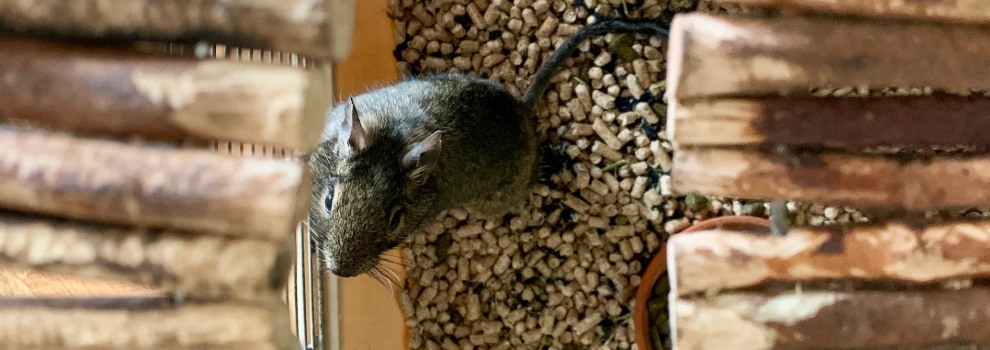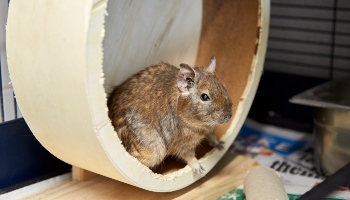- Find a Pet
- Advice and Welfare
- Ways to Give
- Get Involved
- What We Do
- Search
- My RSPCA
- Report a concern
- Sponsor
-
Colour modeVivid Calm
Buying degus
Before buying a degu, find out how they've been cared for and fed, and ask whether they've previously suffered from or are prone to any health or behaviour problems. Speak to your vet for further advice about degus before committing to owning them.
Degu health checks
A healthy degu should be alert with bright, clear eyes, clean ears, glossy fur, a clean tail and a rear end with no signs of faeces.
Check your degus every day for signs of illness or injury, such as:
- Discharge from the nose
- Wetness around the mouth
- Opaque whitening of the eyes
- White teeth as degus' teeth are naturally a yellow-orange colour; white teeth can be a sign of poor health.
Degus' teeth grow quickly and should be checked at least every week to ensure they're the correct colour, length and shape. Only a vet should correct overgrown or misaligned teeth.
It's worth familiarising yourself with the symptoms of common degu illnesses, such as vitamin A deficiency, liver disease, diabetes, tail loss, heat stroke, pneumonia and other respiratory infections.
Always ask your vet if you're ever concerned about your degus' health, or if you notice any changes in their behaviour or eating, drinking or toileting habits. Get your degus health-checked by a vet at least once a year, and get them treated for parasites such as mites and worms if your vet advises it.
Remember, only treat your degus with the medicines recommended for them by a vet. Medicines designed for other animals or humans can be very dangerous to degus.
If you go away
If you're off on holiday, make sure someone feeds your degus and checks on them and their enclosure every day. If possible, keep your degus in their familiar enclosure, as this will be less stressful for them. You can either arrange for someone to care for them in your own home or transport them and their enclosure to someone else's house or boarding establishment.
Ideally, avoid transporting your degus unless it's absolutely necessary. If it's unavoidable, help keep your degus calm by giving them a small amount of used bedding material in the carrying case to make it smell more familiar. Make sure you also provide them with enough hay and water to last the journey.
Finally, it's a good idea to take out pet insurance to cover the cost of any unforeseen vet bills.




